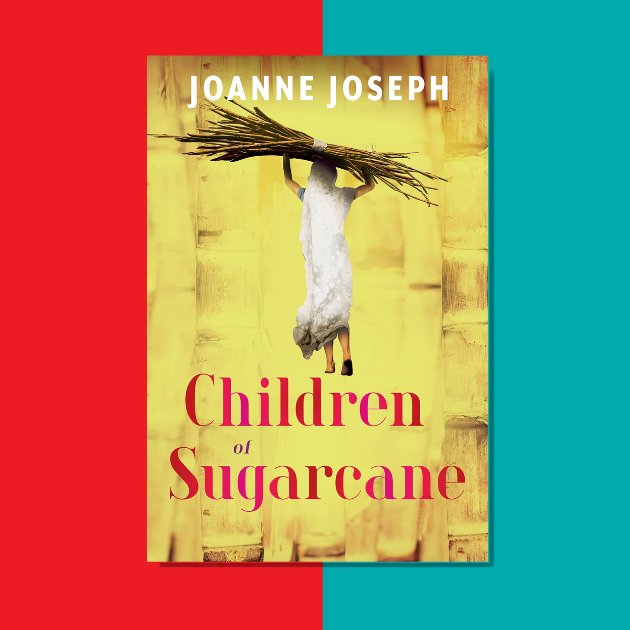Children of Sugarcane

A fine book, and a must read! Joanne Joseph’s Children of Sugarcane tells the story of Shanti Manickam’s journey from India in the 19th century to Port Natal in a bid to escape a forced marriage. Shanti plans to work on a sugarcane farm so that she can send money home to support her parents. The book began as a personal project when Joseph embarked on a quest to find out more about her matrilineal line.
“I was looking for my great-grandmother,” says Joseph. ‘The history on my mother’s side, in terms of her family’s journey to South Africa, was not well documented. My great-grandmother must have been just over 20 years old when she left India with her siblings to come to South Africa for a life of indenture.
“So many aspects of her life are unknown; there has been a weak history of oral tradition in my mother’s family. My great-grandmother was just an ordinary person caught up in history. So I started digging in the archives to find her.”
The only way of telling her great-grandmother’s story was to fictionalise it – to create characters imbued with some of the characteristics she thought her great grandmother might have had. There is no one character in the novel who represents her great grandmother – she is part of the main character, Shanti, but there are elements of her in some of the other characters too.
Joseph explains, “She’s quite fragmented in my mind. It is impossible to know who she was except to impose my 21st century sensibilities on her. I made peace with the fact that I would have to fill in the blanks, drawing on multiple lives and multiple narratives as to how Indian women lived through indenture and survived it.”
The project was an ambitious one and Joseph spent nine years working on the book.
“I had many different processes concurrently on the go. Not only did I have to trawl through history books, but there was also the challenge of internalising it – having to process what it meant for my great-grandmother, for the women who walked this path. There’s also a fine line in telling a historically accurate story that at the same time weaves a narrative that is palatable to the reader.”
“We get to walk with the characters to address our deficits in knowledge about life in indenture”
Joseph’s educational background is in literature and she worked in media for many years. She began the project with no formal training in writing a historical novel and had to learn by engaging with the genre and learning the art.
“It took me a long time to get a handle on what the genre demands. I was a news writer, a current affairs writer. I did not have a background in creating characters who are accessible, who are human, who are grappling with much the same universality that we are in terms of love, despair, hope and conflict – all the difficulties that we see in the 21st century.”